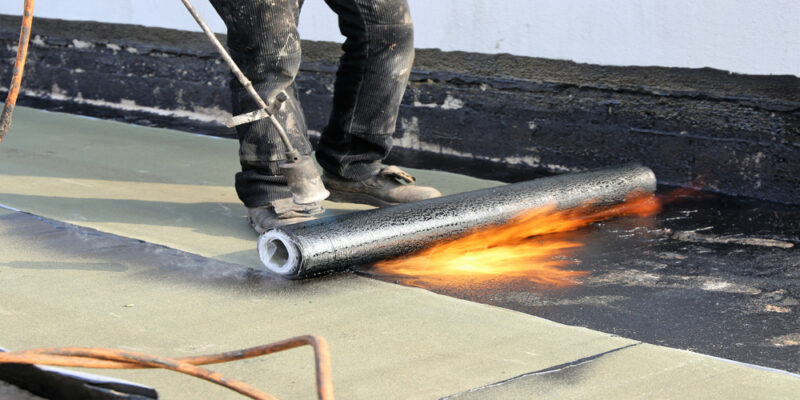
Hygiene in Business: The Role of Cleaning and Maintenance Chemicals
In the realm of business, whether it’s a small cafe, a bustling office, or a large-scale manufacturing plant, maintaining cleanliness and hygiene is paramount. Not only does it contribute to the health and well-being of employees and customers, but it also upholds the reputation and credibility of the business. Amidst the ongoing global focus on health and sanitation, the significance of cleaning and maintenance chemicals in achieving optimal hygiene standards cannot be overstated. This article delves into the importance of hygiene in business operations and the crucial role that cleaning and maintenance chemicals play in ensuring cleanliness.
The Importance of Hygiene in Business
Hygiene in a business setting encompasses a range of factors, including cleanliness, sanitation, and maintenance practices. It directly impacts various aspects of operations, from employee productivity to customer satisfaction. Here are some key reasons why hygiene holds immense importance in business:
Employee Health and Productivity: A clean and hygienic work environment is essential for safeguarding employee health. By minimizing the spread of germs and contaminants, businesses can reduce the risk of illnesses among their workforce. Healthy employees are more productive, leading to improved efficiency and performance.
Customer Perception: The cleanliness of a business establishment significantly influences the perception of customers. A well-maintained space creates a positive impression, instilling trust and confidence in the brand. On the other hand, poor hygiene can drive customers away and tarnish the reputation of the business.
Regulatory Compliance: In many industries, adherence to hygiene standards is not just a matter of preference but a legal requirement. Businesses are obligated to comply with health and safety regulations set forth by local authorities and regulatory bodies. Failure to meet these standards can result in fines, penalties, or even legal consequences.
Brand Reputation: Maintaining high standards of hygiene is integral to building a reputable brand. Businesses that prioritize cleanliness demonstrate their commitment to customer satisfaction and well-being. Positive word-of-mouth and online reviews can significantly impact the perception of the brand and attract more customers.
Prevention of Contamination: Certain industries, such as food service and healthcare, are particularly susceptible to contamination risks. Proper hygiene practices, including the use of effective cleaning chemicals, are essential for preventing the spread of pathogens and ensuring the safety of products and services.
The Role of Cleaning and Maintenance Chemicals
Achieving and maintaining hygiene standards in a business environment often necessitates the use of specialized cleaning and maintenance chemicals. These products are specifically formulated to target different types of contaminants and surfaces, ensuring thorough cleaning and disinfection. Here’s how cleaning chemicals contribute to maintaining hygiene in various business settings:
Surface Disinfection: Cleaning chemicals play a crucial role in disinfecting surfaces and eliminating harmful microorganisms, including bacteria, viruses, and fungi. In high-traffic areas such as restrooms, kitchens, and common spaces, regular disinfection is essential for preventing the spread of infectious diseases.
Stain Removal: Stubborn stains and dirt buildup can detract from the overall cleanliness of a business environment. Cleaning chemicals designed for specific surfaces and stains help effectively remove dirt, grease, grime, and other unsightly residues, restoring surfaces to their pristine condition.
Odor Control: Unpleasant odors can create a negative impression and compromise the comfort of employees and customers. Cleaning chemicals often contain odor-neutralizing agents that help eliminate foul smells and leave behind a fresh, pleasant fragrance, contributing to a more inviting atmosphere.
Specialized Applications: Different business environments have unique cleaning requirements based on the nature of their operations. For example, businesses in the healthcare sector may require disinfectants with broad-spectrum antimicrobial properties, while industrial facilities may need heavy-duty degreasers and solvents to clean machinery and equipment.
Environmental Considerations: With increasing awareness of environmental sustainability, many businesses are opting for eco-friendly cleaning chemicals that minimize harm to the environment without compromising performance. These products are formulated using biodegradable ingredients and safer alternatives to traditional chemicals, reducing their carbon footprint.
Choosing the Right Cleaning Chemicals
Selecting the appropriate cleaning chemicals for a business involves considering various factors, including the type of surface, the nature of contaminants, and any specific regulatory requirements. Here are some key considerations when choosing cleaning and maintenance chemicals:
Effectiveness: The primary objective of cleaning chemicals is to achieve optimal cleanliness and hygiene. Therefore, it’s essential to choose products that are effective in removing contaminants and disinfecting surfaces without causing damage or residue buildup.
Safety: Safety should always be a top priority when selecting cleaning chemicals, especially in environments where employees or customers may be exposed to them. Look for products that are non-toxic, non-irritating, and compliant with safety regulations. Proper handling instructions and safety data sheets should be provided by the manufacturer.
Compatibility: Different surfaces and materials may require specific cleaning solutions to prevent damage or discoloration. It’s essential to ensure that the cleaning chemicals chosen are compatible with the surfaces being cleaned. Conducting compatibility tests or consulting with manufacturers can help avoid potential issues.
Environmental Impact: Businesses increasingly recognize the importance of minimizing their environmental footprint. When possible, opt for cleaning chemicals that are environmentally friendly and biodegradable. Look for certifications such as Green Seal or EcoLogo, which indicate compliance with rigorous environmental standards.
Cost-effectiveness: While quality and effectiveness are crucial, it’s also important to consider the overall cost-effectiveness of cleaning chemicals. Evaluate factors such as dilution ratios, coverage area, and longevity to determine the true cost of using a particular product over time.
Implementing Hygiene Practices in Business Operations
Maintaining hygiene in a business environment requires a proactive approach and a commitment to best practices. Here are some strategies for implementing effective hygiene practices:
Establish Cleaning Protocols: Develop comprehensive cleaning protocols that outline the frequency and procedures for cleaning and disinfecting various areas within the business premises. Assign responsibilities to designated staff members or enlist the services of professional cleaning companies.
Provide Training: Proper training is essential for ensuring that employees understand the importance of hygiene and know how to use cleaning chemicals safely and effectively. Offer training sessions on hygiene protocols, proper cleaning techniques, and the correct use of cleaning equipment.
Invest in Quality Equipment: In addition to cleaning chemicals, investing in quality cleaning equipment such as mops, brushes, vacuum cleaners, and disinfectant sprayers can enhance the efficiency and effectiveness of cleaning operations. Regular maintenance and replacement of equipment are also crucial for optimal performance.
Monitor Compliance: Regular inspections and audits can help ensure that hygiene standards are being consistently maintained across all areas of the business. Use checklists or inspection forms to assess cleanliness, identify areas for improvement, and address any issues promptly.
Stay Informed: Stay updated on the latest developments in cleaning technologies, best practices, and regulatory requirements related to hygiene and sanitation. Engage with industry associations, attend seminars or workshops, and leverage online resources to stay informed and adapt to evolving standards.
Maintaining Hygiene in a Business Environment
Maintaining hygiene in a business environment is essential for safeguarding the health and well-being of employees and customers, preserving brand reputation, and ensuring regulatory compliance. Cleaning and maintenance chemicals play a vital role in achieving optimal cleanliness and disinfection, making them indispensable tools for businesses across various industries.
By prioritising hygiene practices, investing in quality cleaning products, and implementing effective protocols, businesses can create a safe and pleasant working environment.


